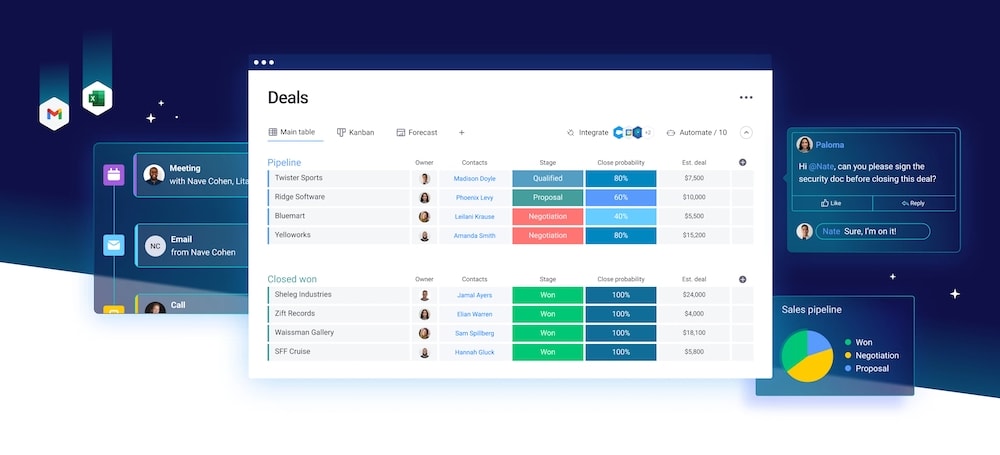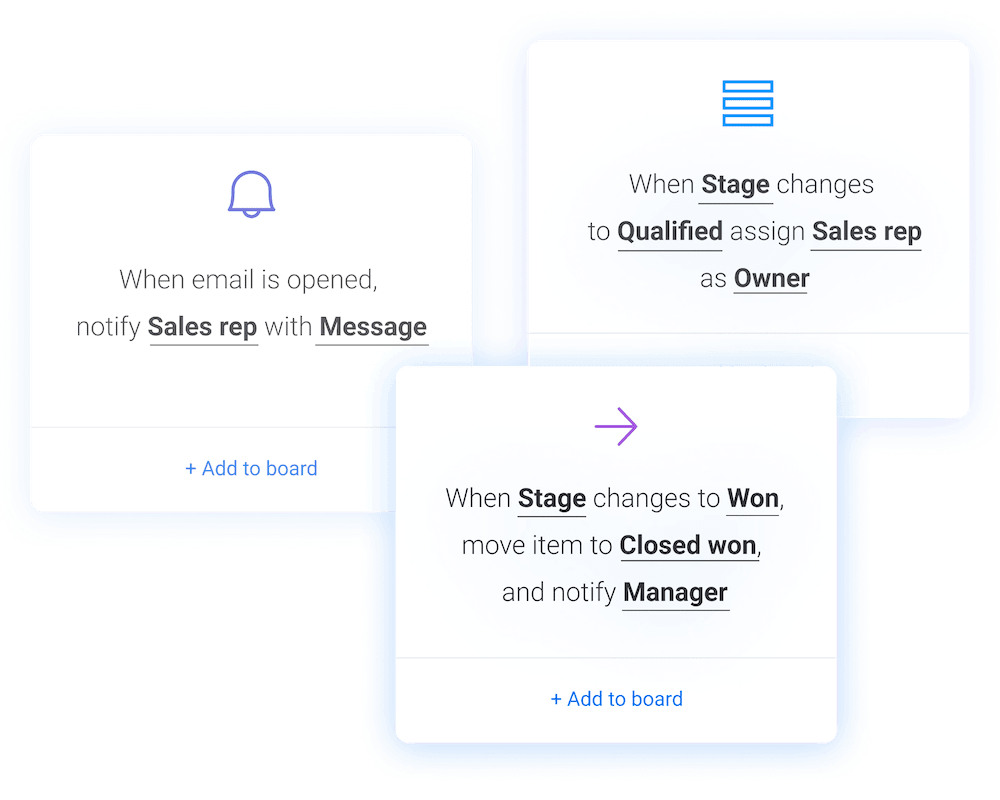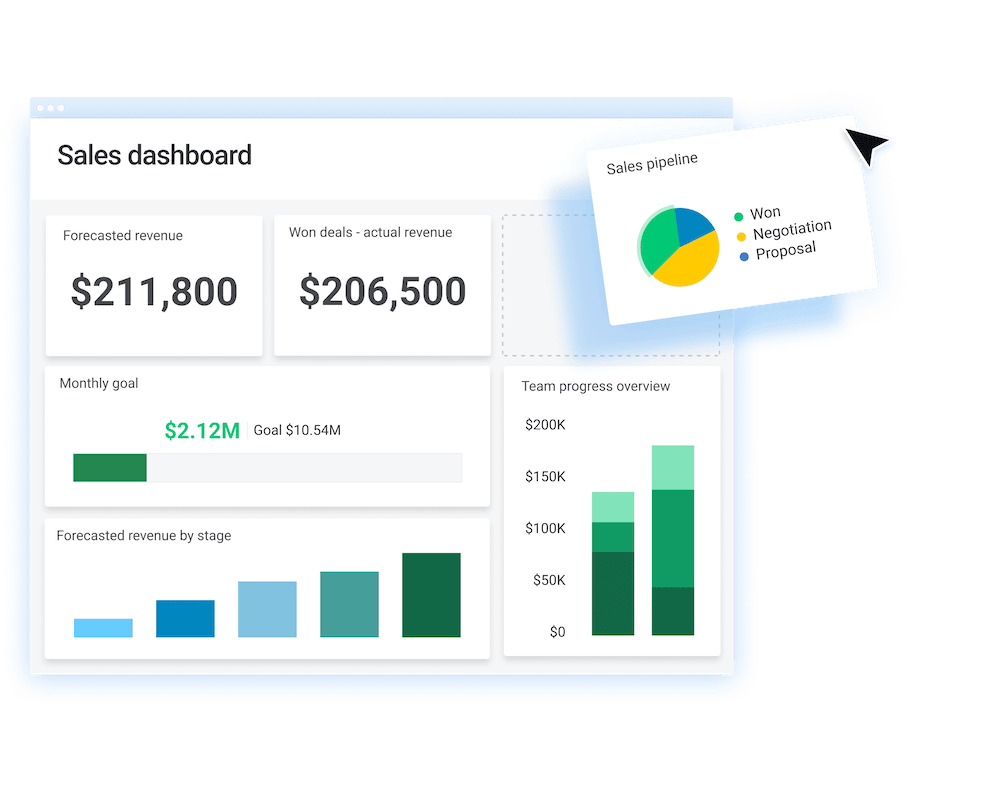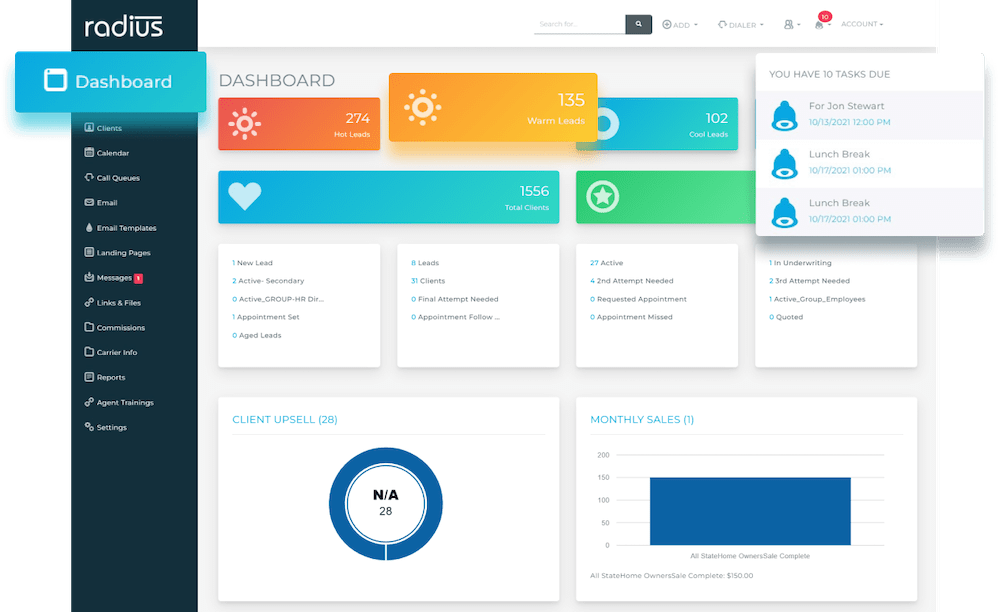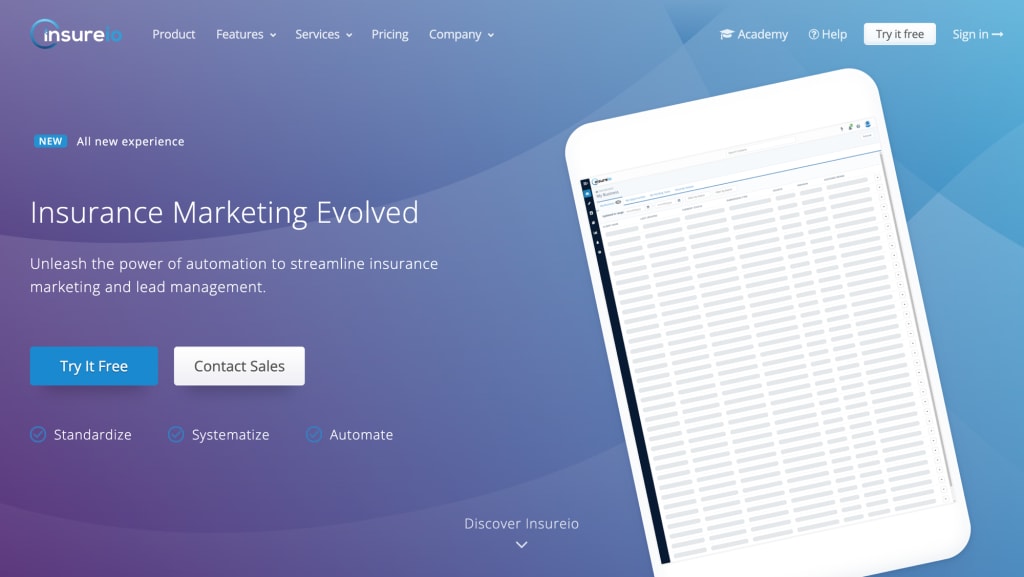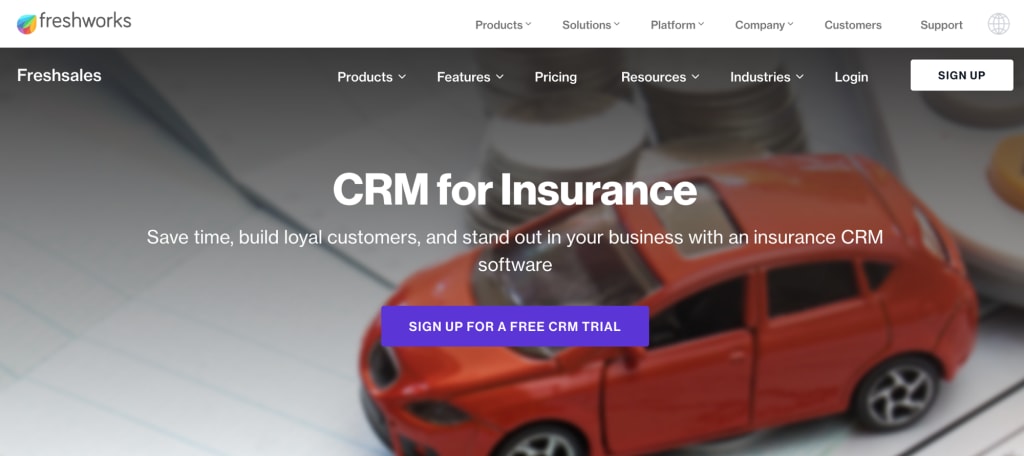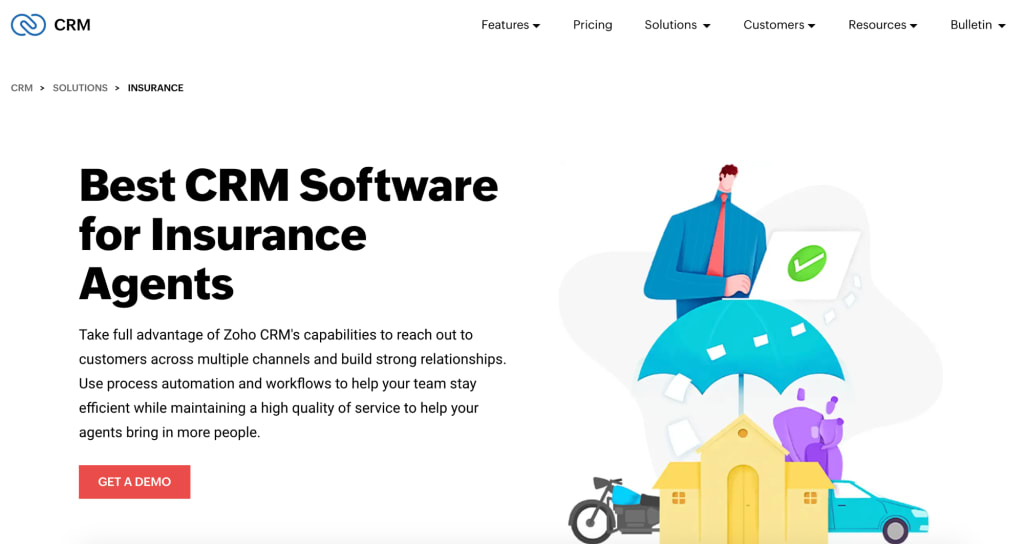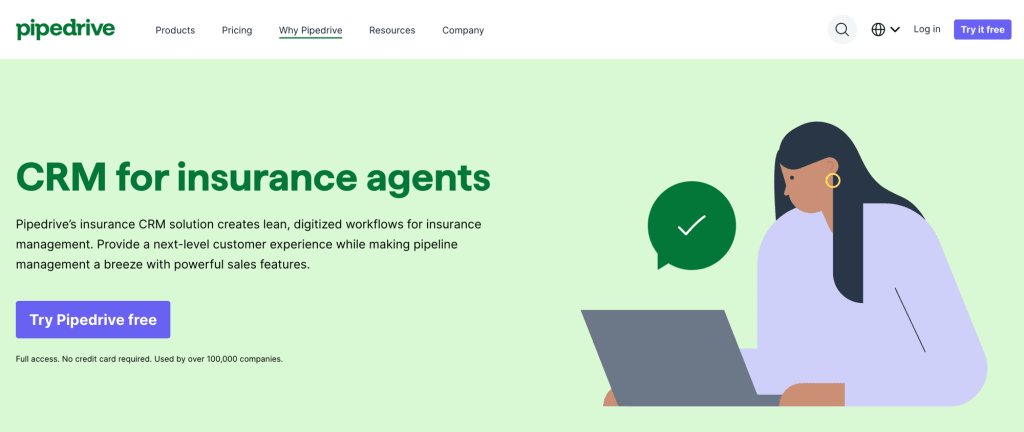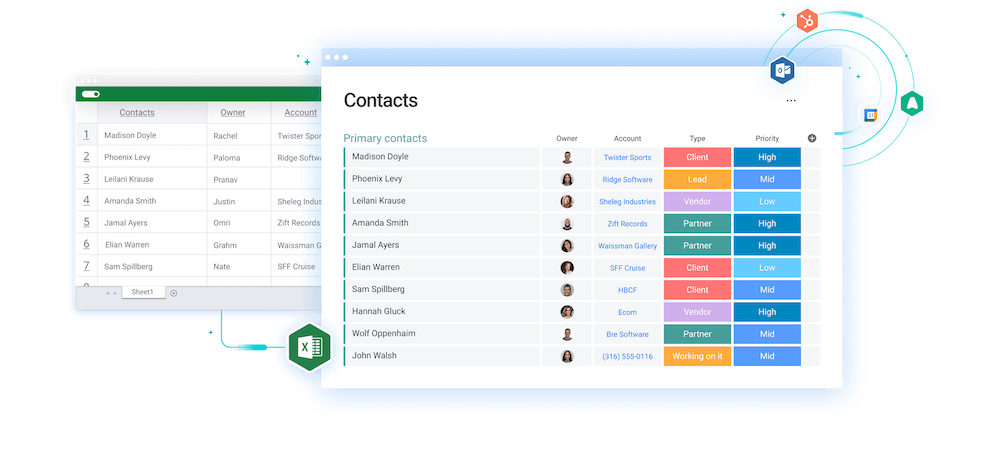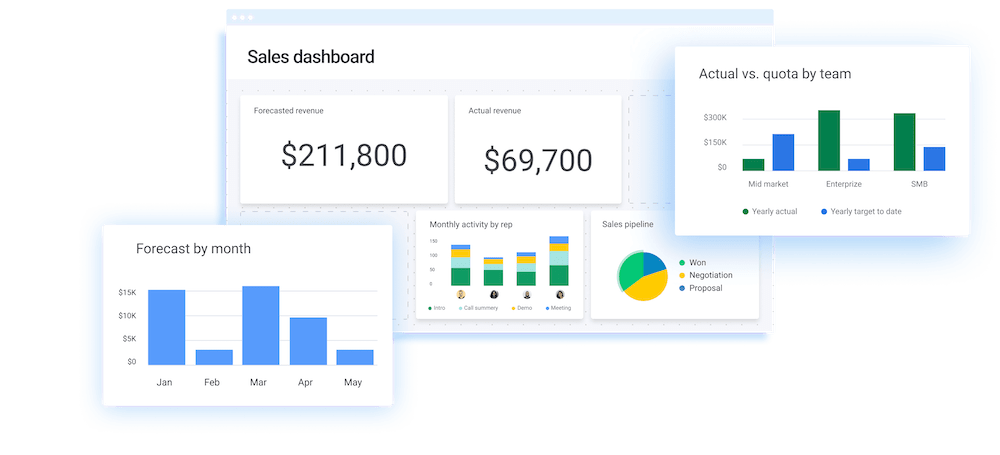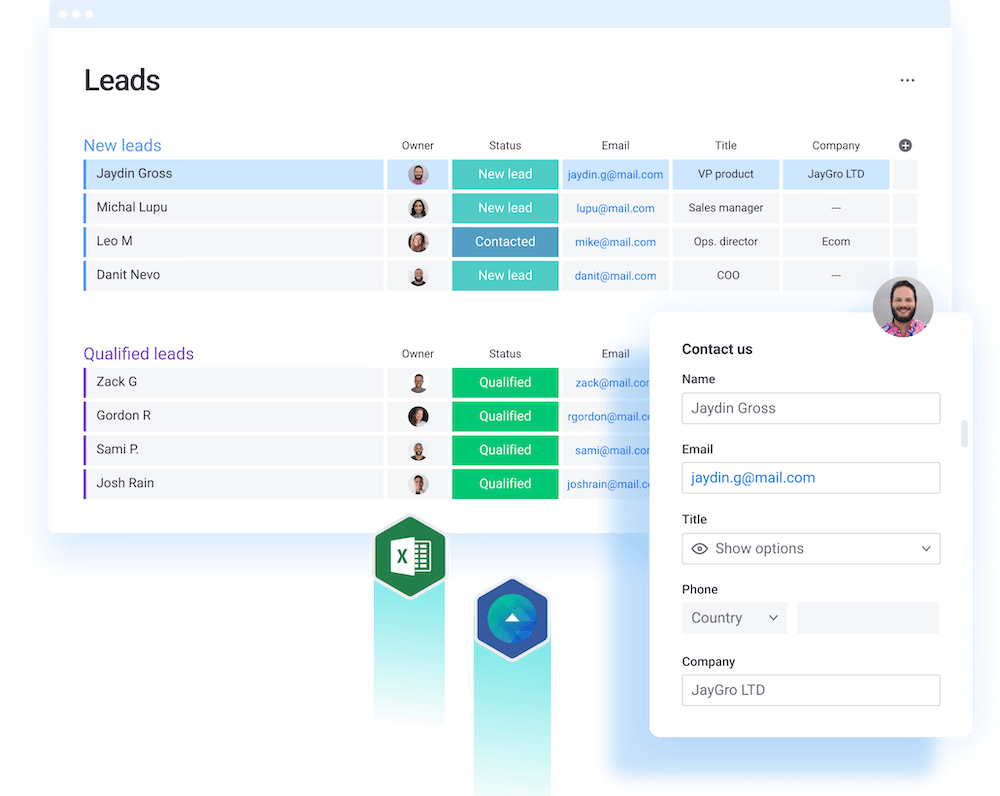Insurance agents have challenging jobs with many responsibilities. From chasing leads and making appointments to calling customers and renewing policies, things can get hectic.
But with a powerful CRM, agents can use a single platform to streamline processes, automate workflows, and manage their books of business. In this article, we’ll examine why insurance agents should use a CRM and highlight the key features to consider. We’ll also share six of the best insurance CRMs and describe why monday sales CRM is ideal for insurance agents.
What is a CRM for insurance agents?
A CRM for insurance agents manages clients, quotes, policies, and other data in one centralized location.
It enables agents to capture leads, manage interactions, build relationships with prospects and customers, track sales activities, measure insights and analytics, and report on performance.
Ultimately, automated workflows streamline customer relationship management processes and increase productivity.
Why should insurance agents use CRM software?
In 2021, the insurance sector comprised 2.9% of the U.S. GDP. That number has consistently increased over several years, with nearly 6,000 insurance companies across the U.S. employing 2.86 million people, of which over 400,000 are insurance sales agents.
Insurance agents can use CRM software to:
1. Save valuable time by automating sales processes
A CRM automates many sales processes that are time-consuming and prone to human error, such as notifying insurance agents when they should reach out to prospects and keeping track of interactions in the database.
2. Manage leads effectively
CRM software helps insurance agents make informed decisions on their next move. Custom lead scoring can identify hot leads that need immediate closure, warm leads that need nurturing, and less critical cold leads that can wait.
CRMs also provide detailed insights into your ideal client. With this information, you can create marketing campaigns (and follow-up plays) that target your best customers more effectively.
3. Communicate efficiently with contacts
CRM software manages contacts and consolidates important customer information, such as multi-channel communications and purchase records, in one place.
Agents can provide a better customer experience by sharing frequent product updates, sending free trial offers and follow-up questionnaires, responding to customer questions, and attending to their concerns at the right time.
4. Maximize profits
CRM software boosts profits by increasing revenues and reducing costs.
Increase revenue. CRM software provides deep insights into clients that facilitate upselling and cross-selling opportunities. For example, your CRM records may show that a client who purchased health insurance has a large family so that you can cross-sell their life insurance policies.
Reduce costs. CRMs help optimize and trim marketing budgets. As a result, you can earn more revenue from existing clients by building customer loyalty AND decreasing the budget allocated toward finding new clients.
5. Gain insights into where deals stand
A CRM helps agents collect vital customer data and glean actionable insights to tweak and optimize their sales processes accordingly. For example, on monday sales CRM you can build customizable dashboards that provide the latest information.
Key features of a CRM for insurance agents
From selling insurance policies to processing claims promptly, insurance agents have to deal with prospective clients and manage existing customer relationships.
The best CRM software for insurance agents includes the following features to help them with their daily activities.
-
Lead management
Generating and managing leads is essential to an insurance agent’s job. A CRM can help agents collect and qualify leads from any source and provide a centralized database to track, view, and prioritize them.
-
Policy management
With a CRM, insurance agents are better equipped to handle every aspect of policy management, including creating quotes, checking and renewing policies, generating reports, tracking customer updates, and identifying cross-selling and upselling opportunities.
-
Performance management
CRM software allows insurance agents to visualize data with custom dashboards and detailed reports that instantly report deal progress, sales figures, and overall performance. Agents can also analyze trends, generate forecasts, and gain visibility into their sales pipeline.
-
Automations
CRM automations reduce the amount of time spent on repetitive and mundane tasks. For example, agents can:
- Set up notifications to remind you of an upcoming call.
- Create automated alerts when a new lead comes into the system.
- Communicate and engage with current customers via email.
- Send automated policy renewal emails.
- Streamline customer onboarding.
-
Mobile CRM
Accessing work via a robust mobile CRM is essential for insurance agents who work remotely, travel to customer homes, and respond to emergency claims. With a mobile CRM, agents can manage every customer interaction easily at any time from any place.
6 Best CRMs for insurance agents
There are several different options when choosing CRM software for insurance agents. On the one hand, you have purpose-built solutions, like Radiusbob or Insureio. And on the other hand, you have sales CRM platforms that include specialized insurance management tools, such as Pipedrive or Zoho.
Here’s a breakdown of each CRM’s key features, pros, and cons.
monday sales CRM
monday sales CRM is one of the top-rated sales products on G2. It enables insurance agents to automate repetitive work, centralize customer communication, and handle everything in one place.
Key features:
- Contact and lead management
- Automated workflows
- Sales pipeline
- Custom dashboards
- Numerous (72+) third-party integrations
Pros:
- Personalized email templates
- Mobile app
Cons:
- Certain features only available on higher plans
Radiusbob
Radiusbob is a popular CRM software built specifically for the insurance industry and includes an integrated VOIP and call center solution. The word “bob” in Radiusbob is short for “book of business,” referring to its lead management tools.
Key features:
- Lead and client management
- Sales and marketing automation
- Organization tools like calendars, tasks, and reminders
- Integrated VoIP with one-click diallers and call recording
- Screenshare, phone calls, and text messaging
Pros:
- Templates for emails and autoresponders
- Interactive voice calling
Cons:
- No mobile app
- Expensive for smaller agencies
Insureio
Insureio was one of the first CRM platforms specifically designed for the life insurance industry. It allows insurance agents to prioritize sales pipelines by minimizing admin tasks.
Key features:
- Lead and client management
- Sales and marketing automation
- Application workflow and approval automation
- Pre-built and custom reporting and analytics
- Telephone click-to-call integration
Pros:
- Automates non-revenue-generating activities
- Sales and marketing templates
Cons:
- No mobile app
- Steep learning curve
Freshworks
Freshworks offers an industry-specific CRM for insurance agents, starting with a free forever plan. It helps agents streamline tasks so they can focus more on selling.
Key features:
- Contact scoring and visual sales pipeline
- Workflow automation
- Reports dashboard
- Sales campaigns
- Event tracking
Pros:
- Offers “Free Forever” plan
- Mobile app
Cons:
- Limited functionality on the free plan
- Fewer integrations than competitors
Zoho
Zoho CRM is ideal for insurance agents who want to nurture leads and engage customers across multiple channels, including social media, live chat, email, and phone.
Key features:
- Contact and lead management
- AI-based insurance sales assistant
- Omnichannel communication
- Automated renewal reminders
- User-friendly interface
Pros:
- Offers free plan
- Includes mobile app
Cons:
- Limited functionality on the free plan
- Insufficient integration with insurance apps
Pipedrive
Pipedrive is an easy-to-use insurance CRM solution that lets agents build lean sales workflows and case resolution processes and makes pipeline management a breeze with powerful sales features.
Key features:
- Intuitive dashboard
- Automated workflows
- Lead and customer tracking
- Customizable pipelines
- Add-on upgrades
Pros:
- Strong reporting capabilities
- Intuitive pipeline dashboard
Cons:
- Limited integration options
- Upgrades can get expensive
Why monday sales CRM is ideal for insurance agents
With monday sales CRM, you can automate repetitive work, centralize customer communication, and organize your data in one place.
1. Centralize customer communication
Log any contact-related activity like calls, meetings, notes, and more in one place. Get notified automatically when a lead opens or replies to an email so that you can follow up at the right time. Plus, use personalized email templates to save you time.
2. Track sales performance
Keep track of your pipelines, targets, and deals. Monitor forecast vs. actual sales and check deal progress with a visual pipeline. Access custom dashboards that instantly report your deal progress and sales figures.
3. Manage your leads
Collect leads from any source, including web forms, social media, Excel, and other tools. Qualify every lead – don’t waste time and money chasing cold leads. Score leads automatically based on custom criteria.
4. Save time with no-code automations
Take advantage of the countless time-saving automations on monday.com. For example, automatically assign leads to agents, set reminders for upcoming activities, and get notified when a contact opens or replies to an email so that you can follow up at the right time.
5. Manage your pipeline without switching tabs
The monday sales CRM integrates with hundreds of apps so you can connect and run your business with the tools you already use. For example, fully sync Gmail/Outlook to send and receive emails or integrate Mailchimp to run email marketing campaigns from one place.
CRM for insurance agents FAQs
Here are a few frequently asked questions about CRMs for insurance agents.
What is the best CRM for insurance agents?
The best CRM for insurance agents depends on your business requirements. You can choose from platforms like Radiusbob, Insureio, Freshworks, Zoho, Pipedrive, and monday sales CRM. Look for features like workflow automation, lead management, centralized communication, and integration with other systems.
What is the best free CRM for insurance agents?
A few CRM platforms offer free plans with limited functionality, including Freshworks, Zoho, Flowlu, and Bitrix24.
What other software do insurance agents use?
Insurance agents use various software based on the products they sell, the locations they operate in, and the market they serve. However, most fall under three broad categories:
- Policy or agency management systems (PMS) or (AMS)
- Accounting software
- Marketing platforms
Some insurance agents use an AMS or PMS to manage policyholders and a CRM for sales and marketing. But with separate systems, you run the risk of duplicate records and out-of-sync information.
Stay ahead of the insurance competition with a CRM
With a CRM, insurance agents can manage their client database more efficiently and personalize their marketing to maximize revenue and customer satisfaction. The best type of CRM for insurance agents is the one that best fits their specific needs.
Try monday sales CRM to see how easy it is to centralize customer communication, manage leads, visualize sales pipelines, and save time with automated workflows.
Explore more B2C CRM solutions: CRM for gym, CRM for photographers, CRM for ecommerce, CRM for real estate, CRM for sports, CRM for plumbers

